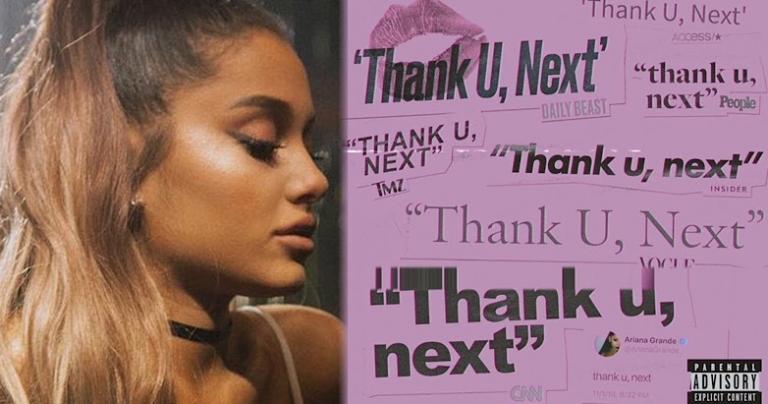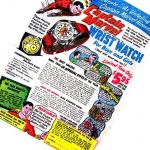 I try to listen and think about the number 1 song of the moment: Ariana Grande and Thank U, Next.
I try to listen and think about the number 1 song of the moment: Ariana Grande and Thank U, Next.
Why Bother?
Number 1 matters, because more souls created in God’s image are listening to The Number 1, than any other song just now. Shouldn’t I take time to consider the Number 1 as a college professor?
”No,” says my peer, “this song is stupid.”
Maybe. Maybe not.
I note that what one generation calls stupid is every so often what the next generation thinks classical. As a result, I pause. One good measure of excellence is the ability to talk to many from one writer. We must take seriously any art that reaches many people.
Still I listen with trepidation. I am not the target audience and am likely to misunderstand because cultural clues will be missed.
There is also a common judgement:
If a guy who looks like me listens to The Number 1, at my advanced age, then I am stupid, unless uncritical. If critical, then clueless, so the strong temptation is to not listen or if I listen to applaud. Of course, any number one song has a genius (of a sort) beyond my ability, so it is easy to applaud the genius of getting millions to pay attention.
I don’t have that talent, unable to attract even thousands let alone millions, but I am curious about any such song. Why do we listen? What does it say (if anything) about us? Mostly, I suspect little. Many Number 1 songs are for dancing and not about the lyrics. Still, some pop has vanilla music, but interesting words like Thank u, Next.
What if, even when you were young, you wished to learn from Paul Simon, Styx, Kansas or any number of pop favorites? Shouldn’t I be able to keep on listening now, even if I started in the pop music dark ages? Does that listening have to be uncritical? In fact, listening to a wide range of music from many different eras has introduced me to fun, excellence, and a bit more understanding.
I don’t want to get trapped in the music of my youth . . .
Other than nostalgia, some songs from my youngling years are now unlistenable (Come Sail Away) and laughably pretentious. Ariana Grande at least avoids that. This song has an idea in it, though it is hard to see it enduring.
On the Song
Thank U Next is sung by a decent voice by pop music standards, though that might be a faint damn: I have had scores of students with better pipes. The star of every community theater musical must aspire to Grande fame!
The song is written and produced by big business to appeal to a wide audience with music that is not very challenging and very repetitive. Evidently Ariana Grande rejects “bubble gum” music, but this is bubble gum music (in terms of complexity) with profanity.
Still we must look at the lyrics, such as they are, and wonder, hoping that age or ignorance does not cause me to misunderstand or that ageism does not keep me from having a voice, because there is something interesting here- this song is a bit of reframing of what sometimes is thought of as a loss, the end of a relationship:
Thought I’d end up with Sean
But he wasn’t a match
Wrote some songs about Ricky
Now I listen and laugh
Even almost got married
And for Pete, I’m so thankful
Wish I could say, “Thank you” to Malcolm
‘Cause he was an angelOne taught me love
One taught me patience
And one taught me pain
Now, I’m so amazing
I’ve loved and I’ve lost
But that’s not what I see
So, look what I got
Look what you taught me
And for that, I sayThank you, next (next)
Thank you, next (next)
Thank you, next
I’m so f*’ grateful for my ex
Thank you, next (next)
Thank you, next (next)
Thank you, next (next)
I’m so f*’Spend more time with my friends
I ain’t worried ’bout nothin’
Plus, I met someone else
We havin’ better discussions
I know they say I move on too fast
But this one gon’ last
‘Cause her name is Ari
And I’m so good with that (so good with that)She taught me love (love)
She taught me patience (patience)
How she handles pain (pain)
That sh*’s amazing (yeah, she’s amazing)
I’ve loved and I’ve lost (yeah, yeah)
But that’s not what I see (yeah, yeah)
‘Cause look what I’ve found (yeah, yeah)
Ain’t no need for searching, and for that, I sayThank you, next (thank you, next)
Thank you, next (thank you, next)
Thank you, next (thank you)
I’m so f*’ grateful for my ex
Thank you, next (thank you, next)
Thank you, next (said thank you, next)
Thank you, next (next)
I’m so f*’ grateful for my exThank you, next
Thank you, next
Thank you, next
I’m so f*One day I’ll walk down the aisle
Holding hands with my mama
I’ll be thanking my dad
‘Cause she grew from the drama
Only wanna do it once, real bad
Gon’ make that sh* last
God forbid something happens
Least this song is a smash (song is a smash)I’ve got so much love (love)
Got so much patience (patience)
I’ve learned from the pain (pain)
I turned out amazing (turned out amazing)
I’ve loved and I’ve lost (yeah, yeah)
But that’s not what I see (yeah, yeah)
‘Cause look what I’ve found (yeah, yeah)
Ain’t no need for searching
And for that, I’ll sayThank you, next (thank you, next)
Thank you, next (thank you, next)
Thank you, next
I’m so f*n’ grateful for my ex
Thank you, next (thank you, next)
Thank you, next (said thank you, next)
Thank you, next (next)
I’m so f*’ grateful for my exThank you, next
Thank you, next
Thank you, next
Yeah, yee
Thank you, next
Thank you, next
Thank you, next
Yeah, yee












